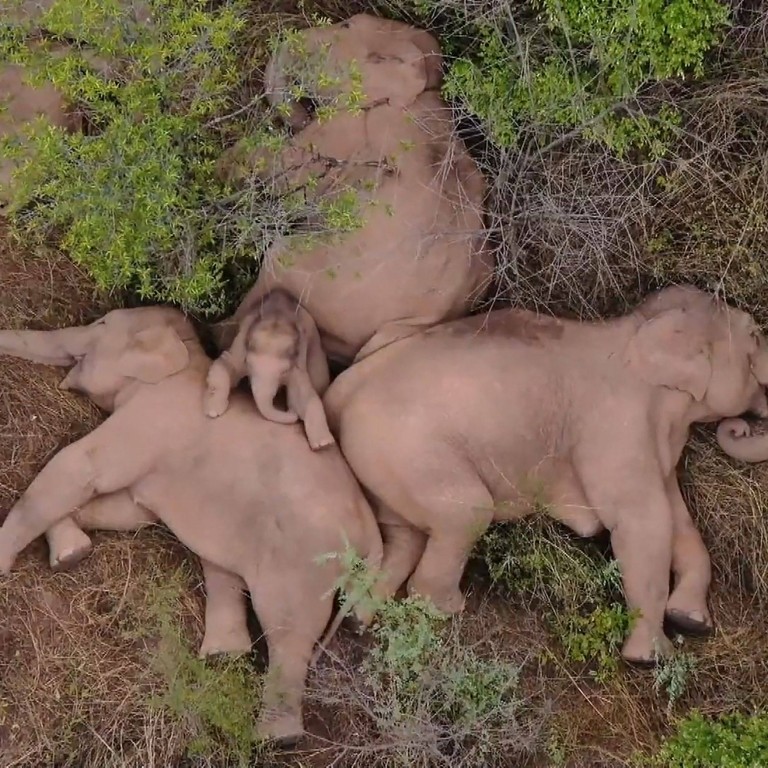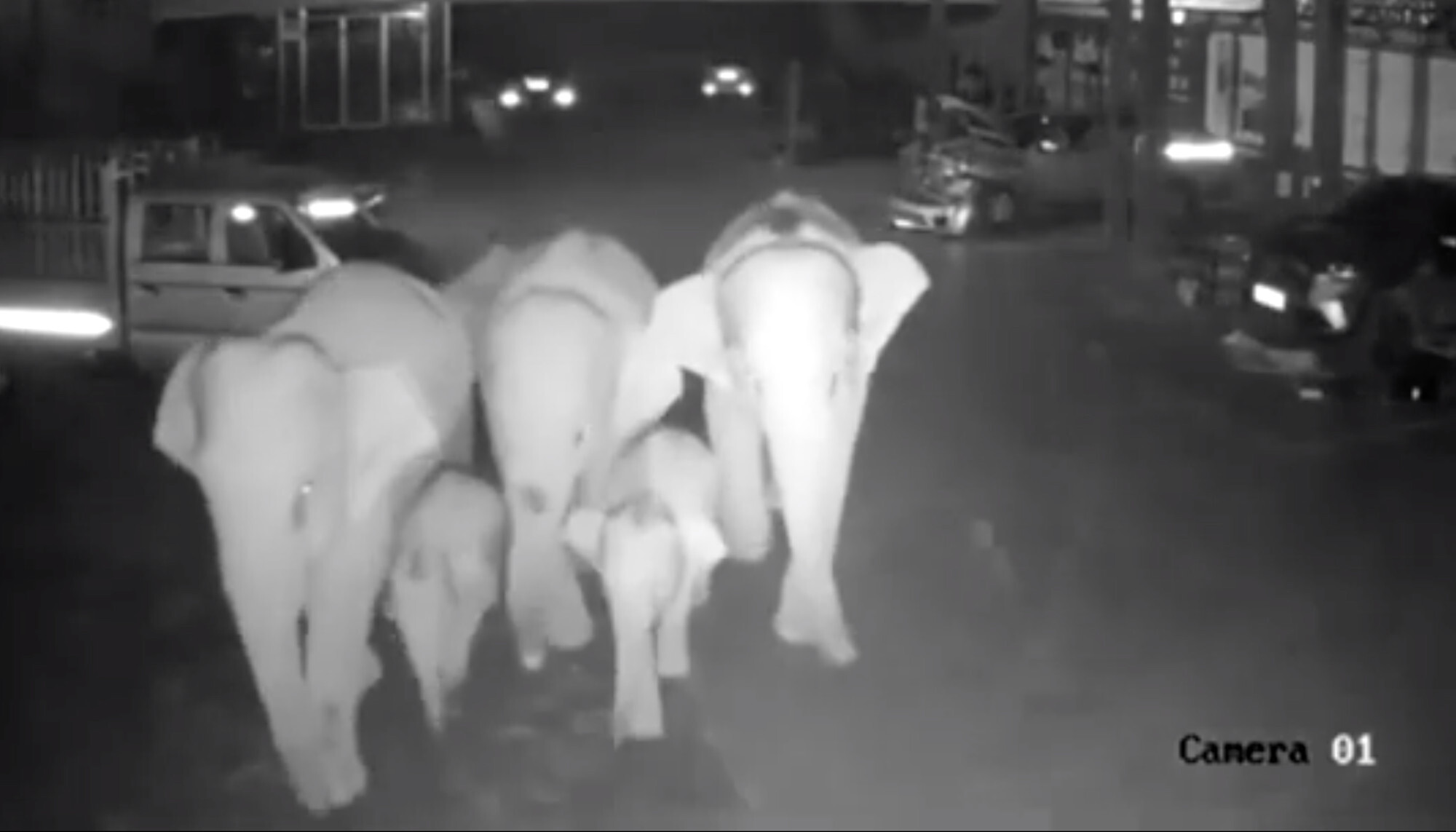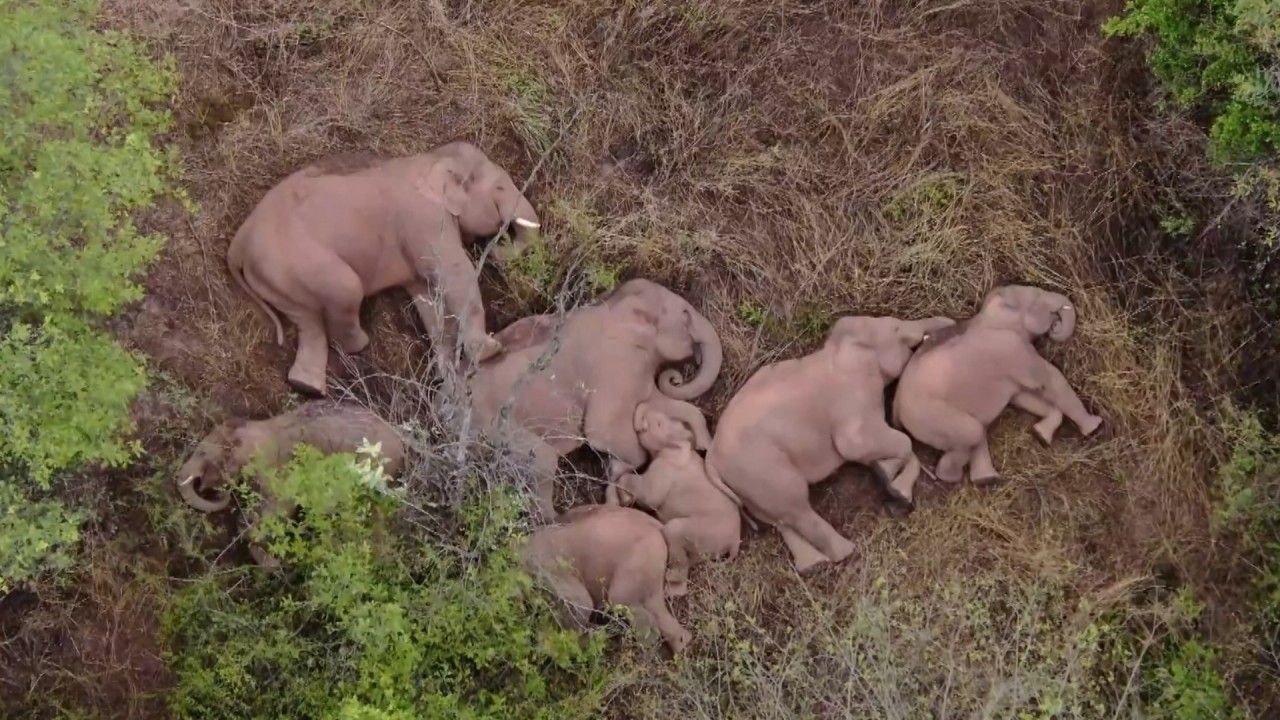
The media circus around China’s famous wandering elephants ignores the habitat loss driving the animals, say critics
- A travelling group of elephants driven from their home by habitat loss, has captured global attention
- Photos of the elephants lying down and taking a siesta in the mountains was reported around the world
Every day a small army of 14 drones, more than 100 trucks, and hundreds of people are trying to change the travel path of a group of 15 elephants that have caught the world’s attention.
The elephants, nicknamed “Broken Trunk Family” because the leader had an injured and shortened trunk, were first spotted nearly 100km north of Xishuangbanna in April.

In late May, they entered Yuxi’s Eshan village, walking along the main road and banging on residents’ houses. In June, they entered the outskirts of Kunming.
According to the latest Yunnan government notice on Wednesday, most of the elephants had turned back to Yuxi, and CCTV reported that three male had left the herd and were wandering aimlessly.
From April, sporadic posts and videos surfaced across Chinese social media on the movement of the herd. But it wasn’t until after they entered Eshan village that they become the centre of an online frenzy.
People posted joyous, welcoming messages, romanticising the elephants’ journey. Villagers said on social media they consider encountering an elephant a blessing. Some stood on their rooftops to take photos.

In one widely-watched video of the herd taking a nap in the mountains, with adults lying on the ground in a circle surrounding a baby calf, people expressed delight at how adorable the group looked.
“Just like a human baby, the elephant baby hates naps too!” one said.
“I previously thought elephants sleep standing up. I guess they also get tired in life and just want to lie around doing nothing,” another said.
One media outlet in the area, Red Star News, sent a team of reporters to follow the elephants’ every step, riding on government trucks, interviewing villagers and tracking elephant dung, reporting on the event like they were on a treasure hunt.
Meanwhile, local governments along the animal’s route kept a close surveillance on the herd. Zhang Xiong, a drone operator with the Yunnan Forest Fire Brigade, told the Beijing News he has seen the elephants trying to hit the drones with their trunks, a reaction to being bothered by the machines.
The nature of the attention has drawn criticism. Zhang Sanfeng, a WeChat blogger, noted that the herd has become actors in a “Truman Show’’, which ignored the real crisis. Some even marvelled at foreign media reports on the incident, expressing that foreigners “finally understood how well China protected its environment”.
“We all know that they’ve lost their homeland forever, yet we still imagine their trip as romantic and mystical,” the blogger wrote.
As the herd trekked north, another herd of 17 had travelled south and settled down in a tropical botanical garden in Xishuangbanna, feasting on its collection of rare flowers and plants.
Previously, professor Zhang Li, an elephant expert at Beijing Normal University, told the South China Morning Post the reason for the elephants’ journey was to find more suitable habitat.
His research had shown that in the past 20 years, suitable habitat for Asian elephants in Yunnan has been reduced by 40 per cent as land has been turned into plantations for economic crops such as tea and rubber.
He has suggested that local governments need to devise a method for long-term restoration of local natural habitat.

.jpg?itok=H5_PTCSf&v=1700020945)
